Business Law With UCC Applications 15th Edition By Paul Sukys – Test Bank
Chapter 11 Written Contracts and Cyber-Commerce
1) In the Opening Case Round 1, Sole Survivor claimed it could vacate Eastland Mall because it had been constructively evicted.
Answer: TRUE
Explanation: Sole Survivor claimed Eastland Mall’s failure to provide a safe and secure working environment amounted to a constructive eviction, justifying Survivor’s decision to leave the premises, which they did after eight years of occupancy.
Difficulty: 1 Easy
Topic: The Statute of Frauds
Learning Objective: 11-01 Identify the goals of the Statute of Frauds.
Bloom’s: Remember
AACSB: Reflective Thinking
Accessibility: Keyboard Navigation
2) If the terms of a contract make it unlikely that the contract can be completed within one year, the contract must be in writing to be enforceable under the Statute of Frauds.
Answer: FALSE
Explanation: If the terms of a contract make it impossible—not extremely difficult or more expensive—to complete the agreement within one year, the contract must be in writing to be enforceable under the Statute of Frauds.
Difficulty: 2 Medium
Topic: The Statute of Frauds
Learning Objective: 11-02 Identify those contracts that must be in writing.
Bloom’s: Understand
AACSB: Reflective Thinking
Accessibility: Keyboard Navigation
3) Sean gives an oral promise to Oscar to buy Oscar’s old house, but only offers to keep the promise enforceable for 30 days. Oscar, relying on Sean’s promise, puts on a new roof and paints it. Twenty days later, Sean changes his mind and says he’s no longer interested. Oscar can enforce Sean’s promise.
Answer: TRUE
Explanation: An exception to the rule that contracts for the sale of land must be in writing is called part performance or equitable estoppel. The exception applies when a person relies on an owner’s oral promise to sell real property and then makes improvements on the property or changes his or her position in an important way.
Difficulty: 3 Hard
Topic: The Statute of Frauds
Learning Objective: 11-02 Identify those contracts that must be in writing.
Bloom’s: Apply
AACSB: Analytical Thinking
Accessibility: Keyboard Navigation
4) Responding to a Craigslist ad, Jennifer, who is a wholesaler of furniture, leaves a voicemail for James, a small custom-made furniture maker, offering to purchase his custom made king-size oak bed frame for $650, even though it was advertised at $1,150. James does not respond. Jennifer has an enforceable contract.
Answer: TRUE
Explanation: Ordinarily under the UCC, contracts for the sale of goods (moveable items) for $500 or more, must be in writing to be enforceable. However, in this case Jennifer and James have an enforceable contract because both are both merchants and Jennifer’s voicemail was an oral offer between merchants to which James did not object.
Difficulty: 3 Hard
Topic: The Statute of Frauds
Learning Objective: 11-02 Identify those contracts that must be in writing.
Bloom’s: Apply
AACSB: Analytical Thinking
Accessibility: Keyboard Navigation
5) The administrator of an estate is a person named by the court, if none is named in a will.
Answer: TRUE
Explanation: An administrator is a person named by the court to do the work of an executor if none is named in the will or if the executor cannot or will not perform those duties.
Difficulty: 2 Medium
Topic: The Statute of Frauds
Learning Objective: 11-02 Identify those contracts that must be in writing.
Bloom’s: Understand
AACSB: Reflective Thinking
Accessibility: Keyboard Navigation
6) When a personal gain to the guarantor is involved, the primary objective test requires that promise to be in writing for the contract to be enforceable.
Answer: FALSE
Explanation: Under the primary objective test (also referred to as the leading objective test and the main purpose test), if the promise to pay another party’s debt is actually made to obtain a gain for the guarantor, there is no need for a writing to enforce the promise.
Difficulty: 1 Easy
Topic: The Statute of Frauds
Learning Objective: 11-02 Identify those contracts that must be in writing.
Bloom’s: Remember
AACSB: Reflective Thinking
Accessibility: Keyboard Navigation
7) The main purpose construction rule is the most fundamental guideline for the interpretation of written contracts.
Answer: FALSE
Explanation: The main purpose test applies to promises made in the guarantor context, not interpretation of contracts. Under the main purpose test (also called the primary objective test and the leading objective test), if the promise to pay another party’s debt is actually made to obtain a gain for the guarantor, there is no need for a writing to enforce the promise.
Difficulty: 2 Medium
Topic: Legal Rules for Written Contracts
Learning Objective: 11-04 Explain the Standard Construction Rule.
Bloom’s: Understand
AACSB: Reflective Thinking
Accessibility: Keyboard Navigation
8) Under the best evidence rule, evidence of oral statements made before signing a written agreement is admissible in court to change the terms of a written agreement.
Answer: FALSE
Explanation: Under the best evidence rule, the courts generally accept into evidence only the original of a writing, not a copy. The question is referencing the parol evidence rule—evidence of oral statements made before signing a written agreement is not admissible in court to change the terms of a written agreement
Difficulty: 2 Medium
Topic: Legal Rules for Written Contracts
Learning Objective: 11-05 Discuss the Parol Evidence Rule.
Bloom’s: Understand
AACSB: Reflective Thinking
Accessibility: Keyboard Navigation
9) Under the equal dignities rule, oral evidence cannot be used to clarify terms that are obscure in a written contract.
Answer: FALSE
Explanation: Under the equal dignities rule, which is followed in some states, when a party appoints an agent to negotiate an agreement that must be in writing, the appointment of the agent must also be in writing.
Difficulty: 2 Medium
Topic: Legal Rules for Written Contracts
Learning Objective: 11-06 Explain the exceptions to the Parol Evidence Rule.
Bloom’s: Understand
AACSB: Reflective Thinking
Accessibility: Keyboard Navigation
10) Charles only has a photocopy of his written contract with Jenny, and not the original. Under the best evidence rule, since Charles only has a photocopy, it is the ‘best evidence’ the court can accept in his trial.
Answer: FALSE
Explanation: Under the best evidence rule, courts generally accept into evidence only the original of a writing, not a copy. Under this rule, a written instrument is regarded as the primary or best possible evidence.
Difficulty: 3 Hard
Topic: Legal Rules for Written Contracts
Learning Objective: 11-07 Explain the Best Evidence Rule.
Bloom’s: Apply
AACSB: Analytical Thinking
Accessibility: Keyboard Navigation


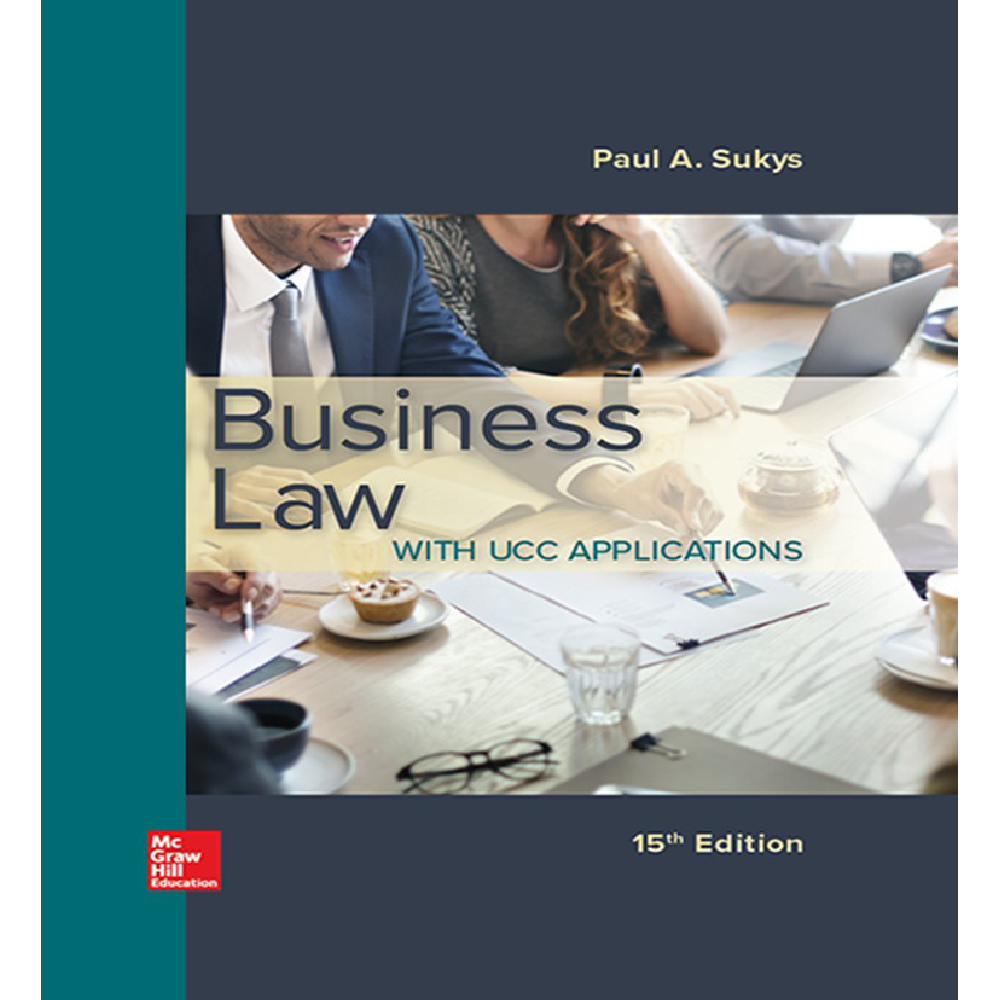


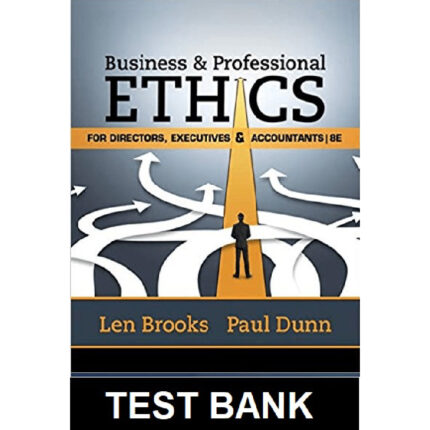
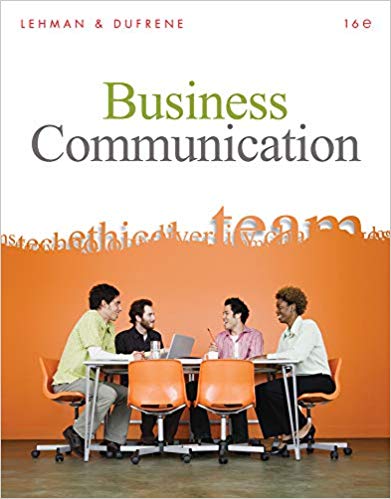
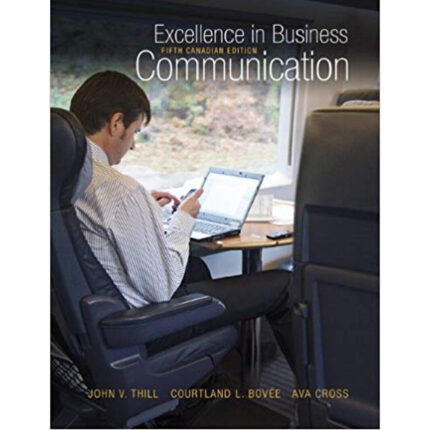
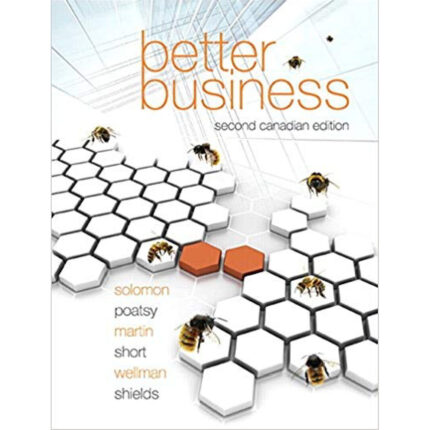
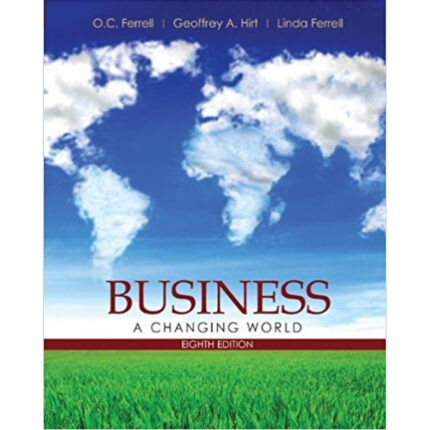
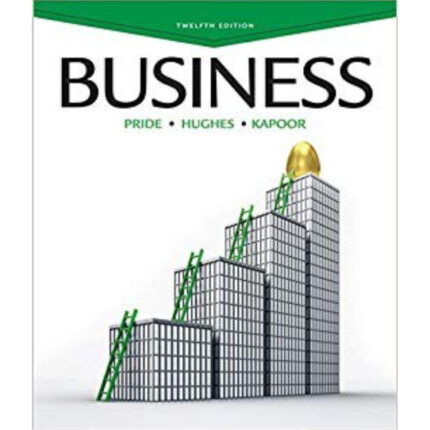


Reviews
There are no reviews yet.